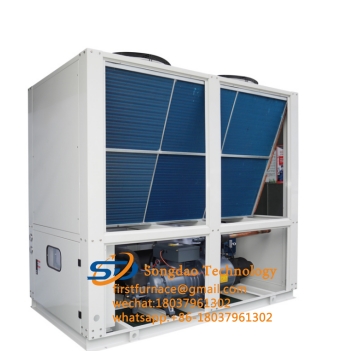- 08
- Jan
What are the common performance requirements of refrigerants?
What are the common performance requirements of refrigerants?
If the chiller can operate normally and safely, refrigerant is indispensable. It is a working medium that circulates in the chiller refrigeration system to achieve refrigeration, and is also called a refrigeration working medium or refrigerant. So, what are the common performance requirements of the refrigerant for the chillers of different refrigeration cycles?
1. Thermodynamic properties [plating chiller]
1. It must have a moderate saturated steam pressure. Evaporating pressure should generally not be lower than atmospheric pressure to avoid air leakage into the system (take screw chiller/air-cooled chiller/water-cooled chiller as an example); the condensing pressure should not be too high, otherwise the pressure resistance requirements of the system will be affected. Increase, and will increase the power consumption; in addition, the ratio of condensing pressure to evaporating pressure should not be too high, otherwise it will cause the compressor discharge temperature of the chiller to rise.

2. It must have a higher critical temperature (more than the ambient temperature), so that it can be liquefied at room temperature or ordinary low temperature, and the throttling loss will be reduced.
3. It must have a lower solidification temperature. This prevents the refrigerant from freezing at the evaporating temperature.
4. It must have a higher thermal conductivity. This can increase the heat transfer coefficient of the heat exchanger of the chiller (take screw chiller/air-cooled chiller/water-cooled chiller as an example), reduce the heat transfer area, and reduce manufacturing and operating costs.
5. There must be a small adiabatic index. This can make the compression process consume less power, and the compressor discharge temperature will not be too high.
6. The specific heat capacity of refrigerant liquid is smaller. This can reduce the throttling process loss.
2. Physical and chemical performance [air-cooled chiller]
1. It must have a smaller density and viscosity, which can reduce the flow resistance loss of the refrigerant in the unit refrigeration system (take screw chiller/air-cooled chiller/water-cooled chiller as an example).
2. It is required to be non-flammable, explosive, non-toxic, and not easy to decompose under high temperature, and not easy to corrode the metal parts of the chiller.
